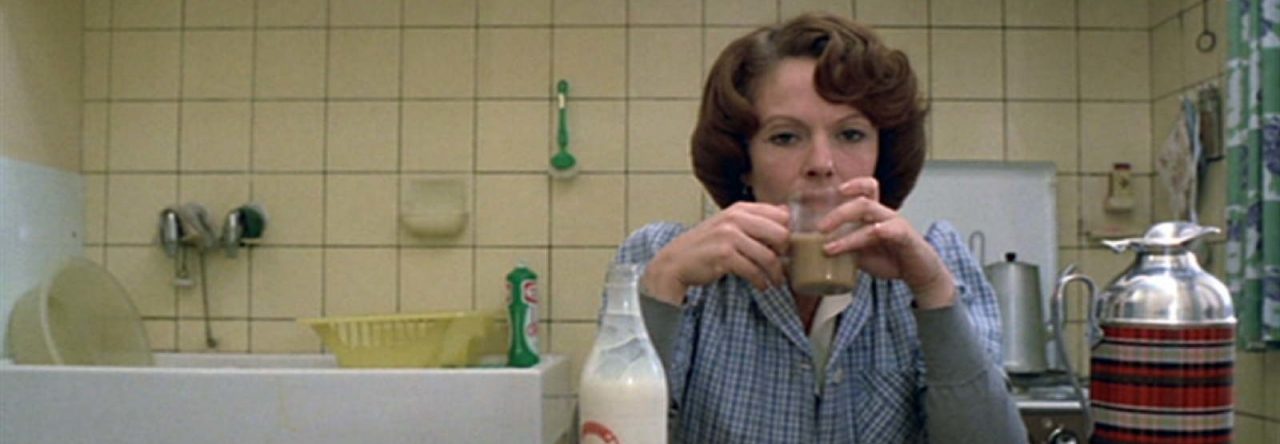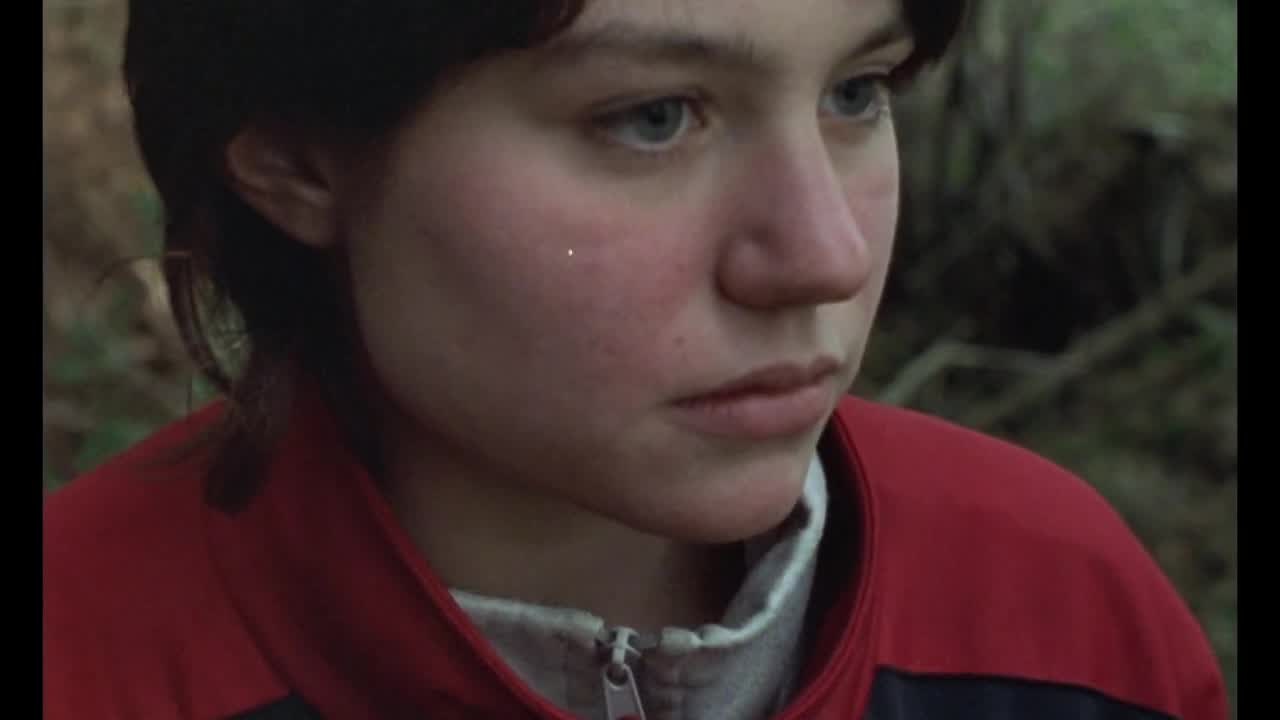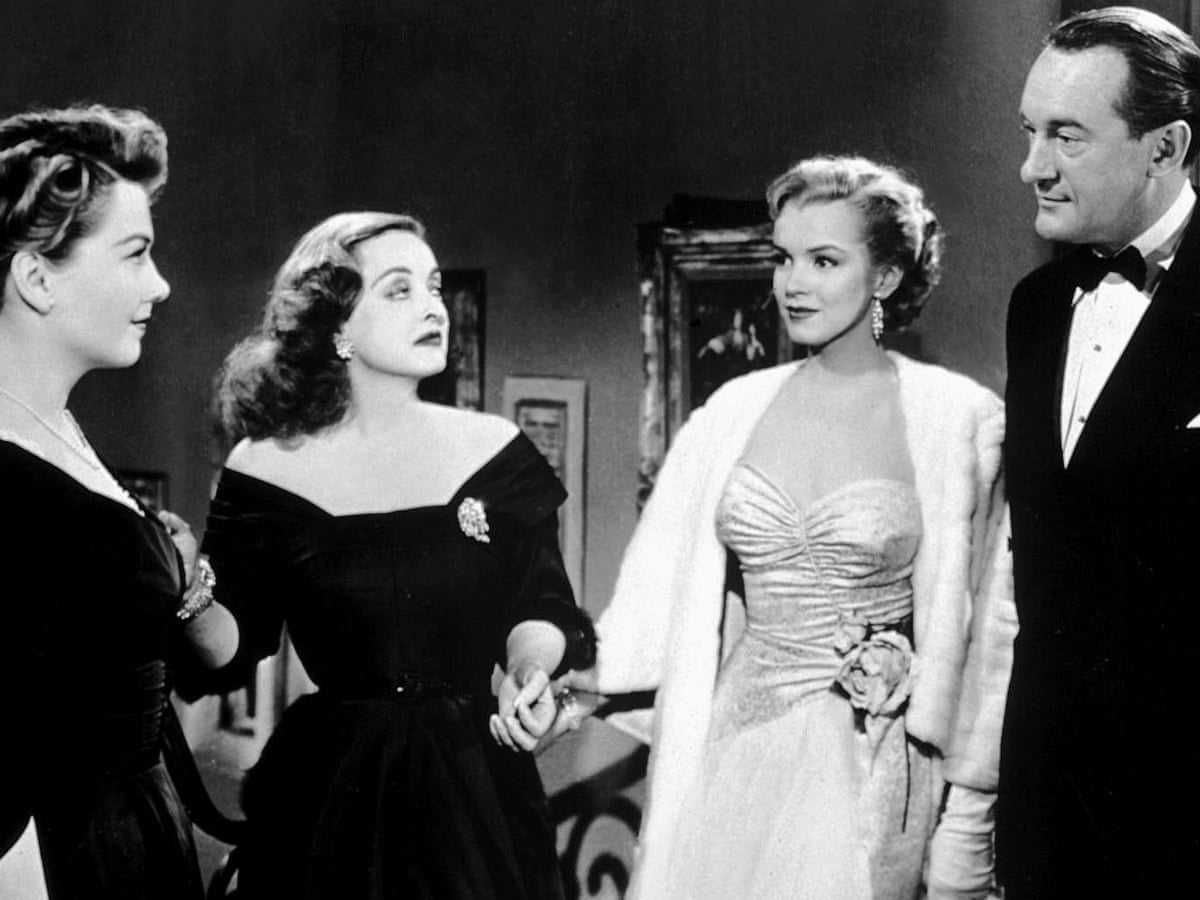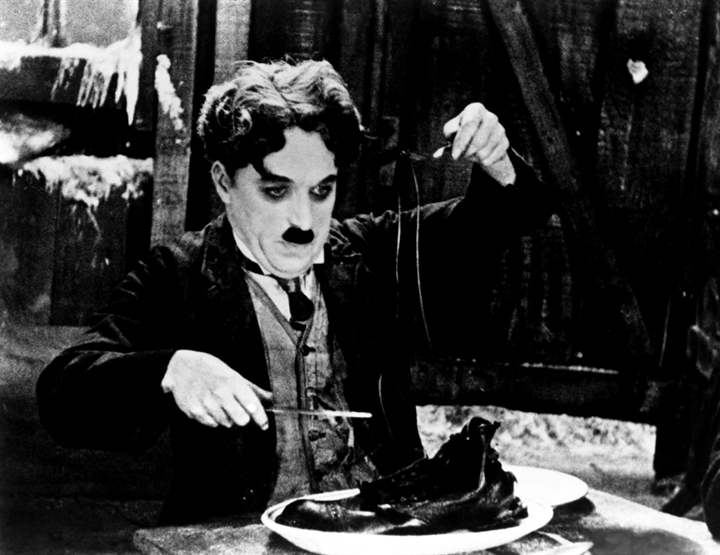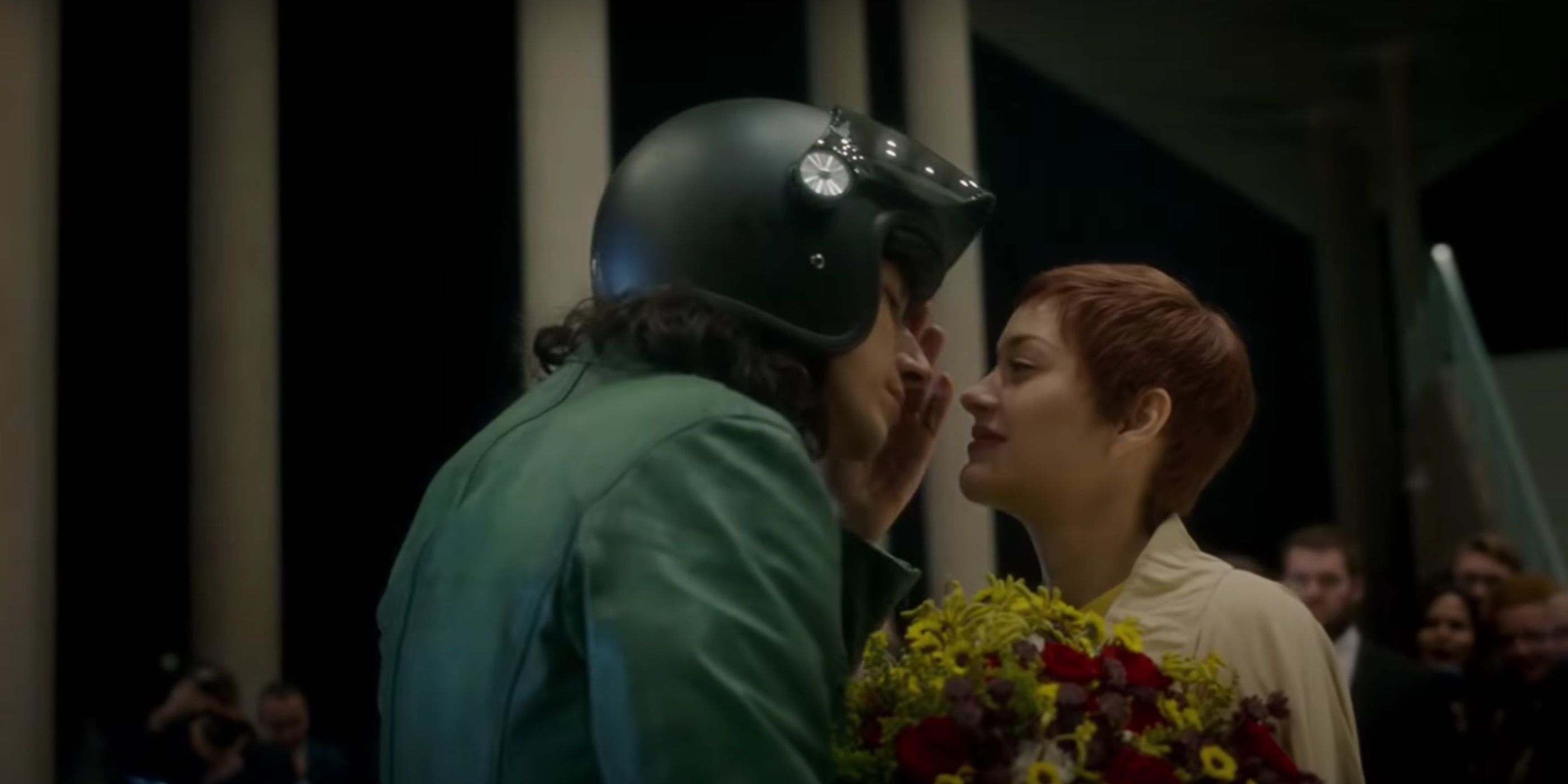Week two of the new year was much like week one for my film watching. I placed a heavy priority on making a dent in my personal Criterion collection that I have not yet watched. This will undoubtedly be an ongoing project as I have fallen quite behind on my watching. Additionally, with the final best of 2021 lists hitting this week, I spent supplemented my Criterion diet with a steady stream of 2021 films that the critics I follow suggested.
Hiroshima Mon Amour (1959, Dir. Alain Resnais)

Alain Resnais’s French New Wave feature is an exploration of the things in which all is fair: love and war. Emmanuelle Riva plays an unnamed French woman in Hiroshima to act in a movie that is using the location to tell a story of piece. In the last days of her shoot she meets a Japanese man – played by Eiji Okada – and the two fall instantly in love. From that set up, the film follows the two around the city for 24 hours as they discuss what Hiroshima, and the bomb, means to them along with their experiences in love and their longing to stay together. The film relies heavily on passion, not just between the characters but the passion that each actor is able to impart upon the role. The “will they won’t they” push and pull between the two creates stellar drama and is only capable of doing so because the film is so well acted.
Wings of Desire (1987, Dir. Wim Wenders)
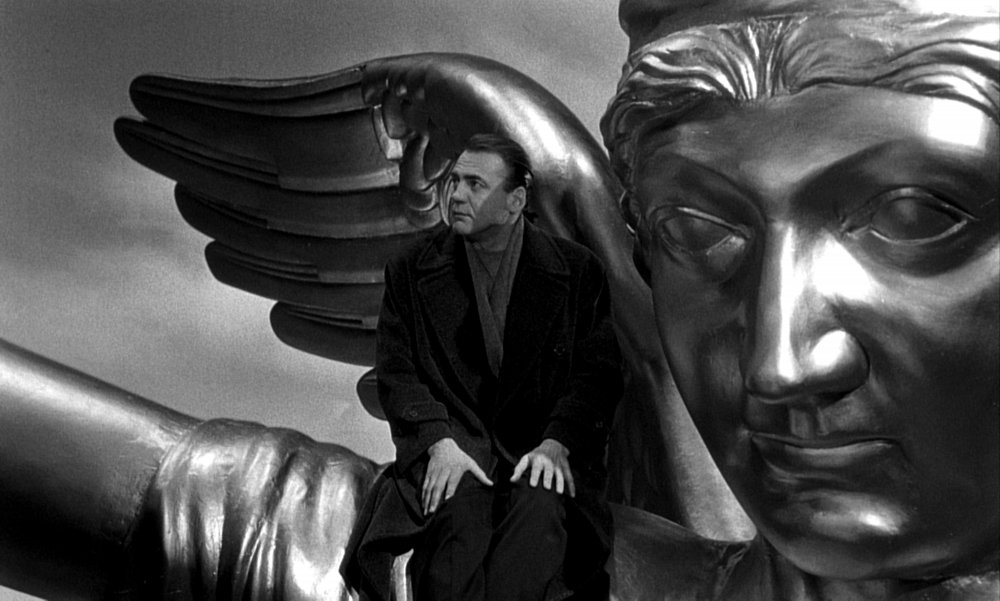
Wings of Desire is a wonderful meditation on humanity from German auteur Wim Wenders. The story of an angel Damiel (Bruno Ganz) who so loves the humans that he observes as part of his angelic purpose that he choses to forfeit his immortality and live as one of them. The fallen angel story may be what the film ultimately builds to, but it makes up relatively little of the actual runtime. Instead Wenders spends the first three quarters of the film in Damiel’s angelic shoes watching humans and hearing their inner thoughts through voice over. This cinematic decision to spend so much time from a voyeuristic works perfectly for the medium of film and can even be seen as a loving tribute to the cinematic experience.
Bitter Rice (1949, Dir. Giuseppe De Santis)

Giuseppe De Santis made an Italian film that felt at home with the output of Hollywood in his 1949 feature Bitter Rice. Leaning heavily on the noir sensibilities that were prominent at the time the film tells the story of Francesca (Doris Dowling) a woman who upon committing a burglary with her partner Walter (Vittorio Gassman) finds cover by joining the annual rice harvest done exclusively by women. It is there that she meets Silvana (Silvana Mangano) and the three of their futures become entangled. The setting of a women only provides a uniqueness to the crime story. It centers the story around female friendships and is the better for it.
The World to Come (2021, Dir. Mona Fastvold)

The lesbian period drama is undeniably cliched by this point, but when they are done well, they can still be moving. The World to Come is a lesbian period drama done well. Much of that is due to the aft directorial hands of Mona Fastvold. She focuses on the intense longing between Abigail (Katherine Waterston) and Tallie (Vanessa Kirby) rather than any of the physicality they experience. This results in a passionate forbidden love story that titillates the senses without exposing a single breast. The World to Come is one of the most emotionally riveting films of the last year.
Swan Song (2021, Dir. Todd Stephens)

Watching Udo Kier dance to Robyn’s “Dancing on My Own” is one of the most fun moments cinema in 2021 had to offer. In Swan Song, he plays Pat and aging, gay, retired hairdresser who is propositioned to come out of retirement for one last job doing a deceased woman’s hair for her funeral. This excuse to leave his nursing home sets Pat on a trip down memory lane as he regains his sense of self. Kier makes this movie as special as it is. In story and direction, the film may be unremarkable, but Kier’s performance elevates the film with his wonderful camp and charisma.
The Worst Person in the World (2021, Dir. Joachim Trier)
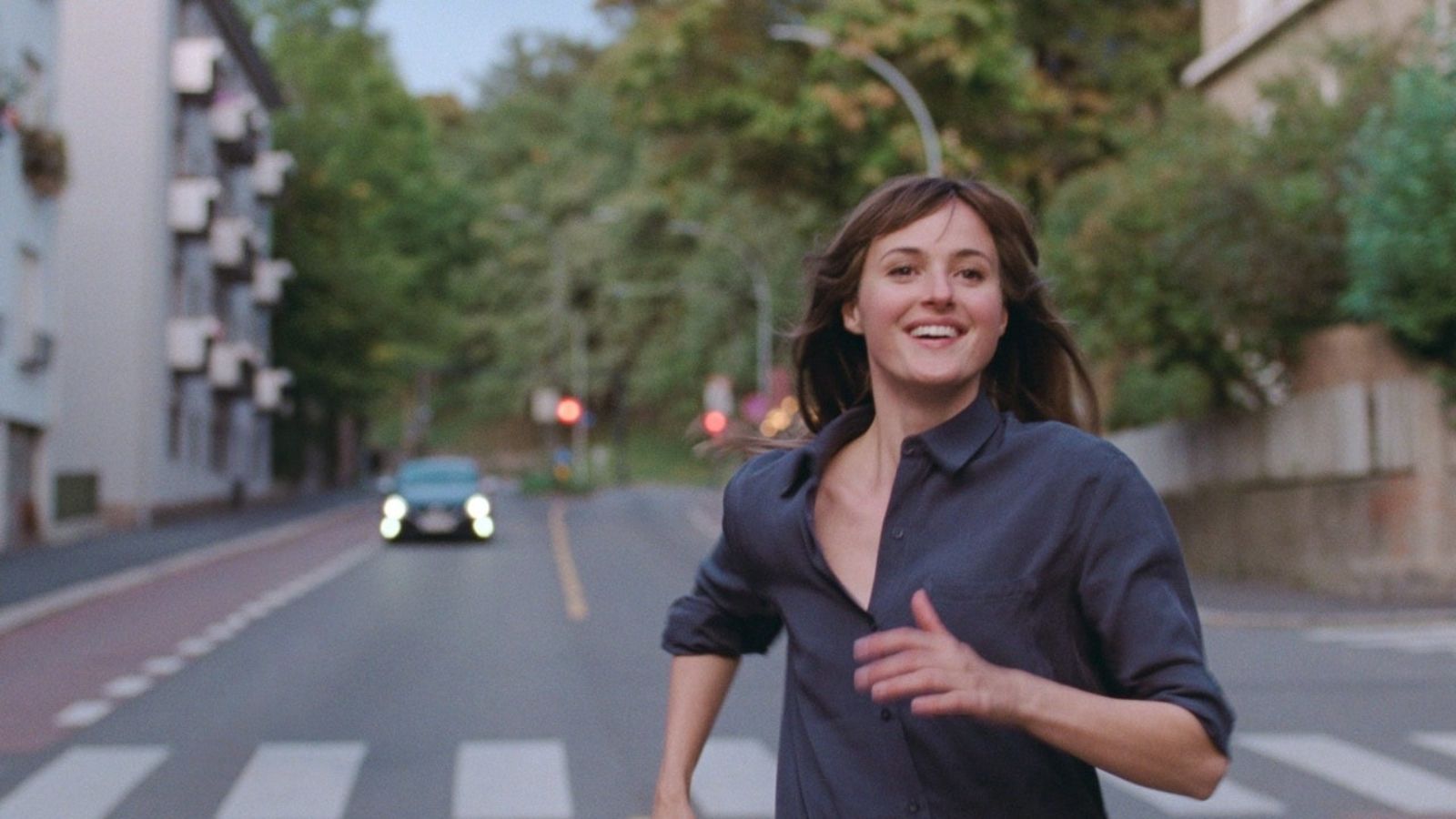
Julie – played miraculously by Renate Reinsve – is not the worst person in the world; in fact, she is no different than many 30-year-old millennials. She speaks out a little more than the older generations find comfortable, and she makes some questionable decisions. They just all come along with the uncertainty in life that this generation feels. Director Joachim Trier captures the listlessness of the quarterlife crises that has extended well past its appropriate end date. As the film progresses, it leans heavier on Reinsve. The emotions become stronger as her life becomes more complicated and Reinsve delivers at every moment.
All Light, Everywhere (2021, Dir. Theo Anthony)

All Light, Everywhere is the new documentary by Theo Anthony examining human bias and blind spots specifically through the lens of police body cameras. The imperfections of the police body cameras are clearly stated by the film: the cameras are “watching what happened to them [the police officers] but not what they did”. This imperfection in the visual prophet obscures facts about events in ways that stack the deck for the police officers. The film waxes on philosophically about the nature of vision and captured image in between the moments more directly related to police observation, but the connection is at times nebulous, and the film comes across as rather naval gazey.
A Woman Under the Influence (1974, Dir. John Cassavetes)

Mable (Gena Rowlands) is under many influences. These start superficially with her drunken escapades, but eventually the influences become more nebulous. Her roles as a mother and wife weigh down on her as does some good old fashioned mental illness. Rowlands plays this overwhelming break on her psyche over the top, but the performance never feels of camp. Instead, her performance feels like the only appropriate way to play her character’s ailment. It comes across as both exaggerated and grounded at the same time. The actions she is making may be extreme, but the emotion and fear behind them strike as true.
Mon Oncle (1958, Dir. Jacques Tati)

I am going to be honest, I do not really get the Monsieur Hulot films. They have their moments, and Mon Oncle is no different, but they just feel like low energy Charlie Chaplin films. Hulot as a protagonist is so passive that when funny things happen around him, they are often shrugged off with out really playing into the absurdity. This leads to a film that surely arouses some chuckles but never any uproarious laughter.
The Last Duel (2021, Dir. Ridley Scott)

The first of two Ridley Scott films in 2021 tells the graphic story of two friends turned enemies who are set on a course to battle each other to the death in 14th century France. The film is told through the Rashômon trope of telling the same story through different viewpoints. That being of the two rivals, Sir Jean de Carrouges (Matt Damon) and Jacques Le Gris (Adam Driver) and Carrouges’s wife Marguerite (Jodie Comer). The Rashômon style adds a flare that the otherwise cut and dry period drama would be lacking and keeps the film’s pace up despite the two and a half hour runtime. It’s always a risk to directly compare your film to a classic, but it worked well for Scott in The Last Duel.
